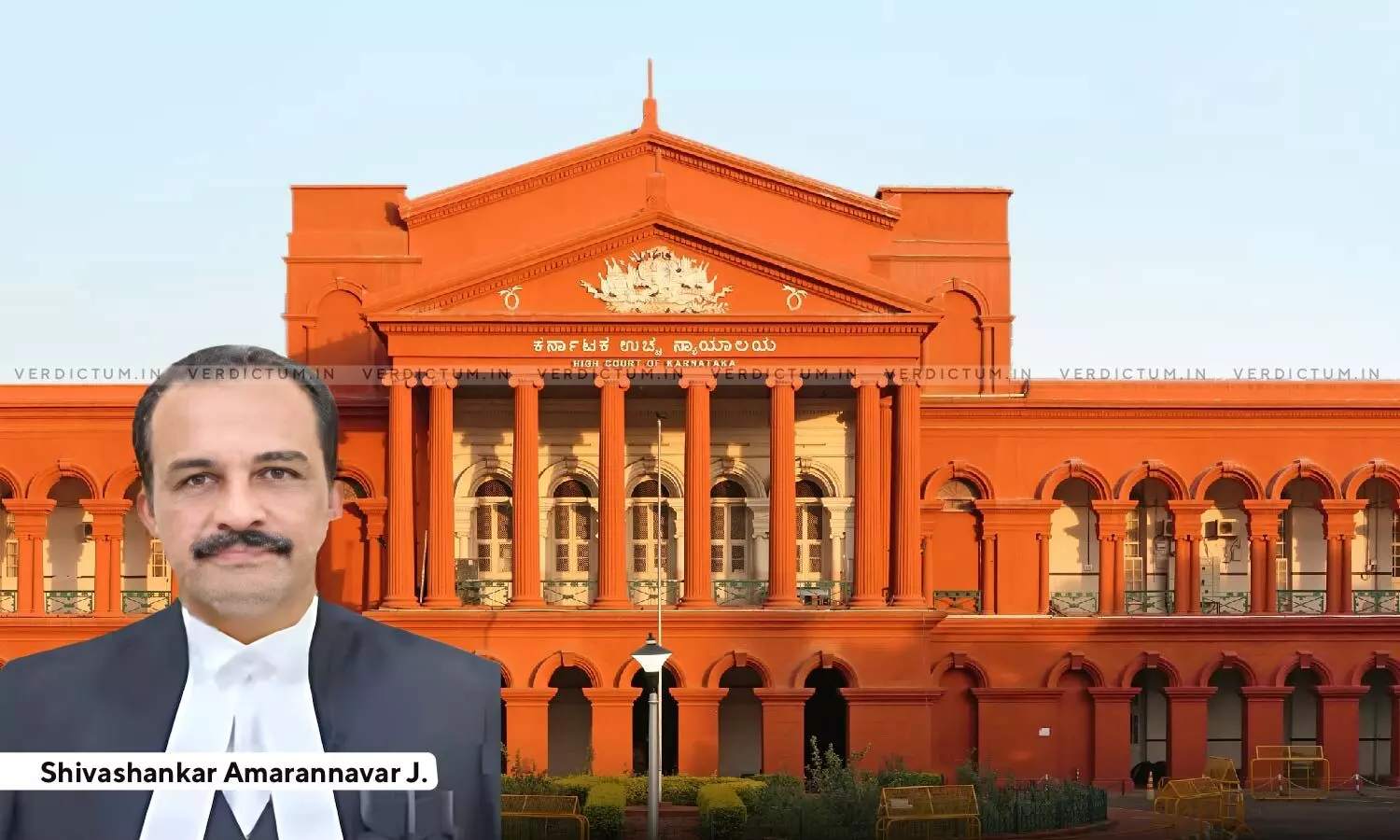
'Minor Offence' U/S 222 CrPC Is Not Independent Of Main Offence Or An Offence Merely Involving Lesser Punishments: Karnataka HC
 |
|The Karnataka High Court has held that a minor offence within the meaning of Section 222 CrPC is not something independent of the main offence or an offence merely involving lesser punishments.
Holding that the minor offence should be composed of some of the ingredients constituting the main offence and be a part of it, the Bench of Justice Shivashankar Amarannavar observed that, "The term, “minor offence” has to be interpreted in its ordinary sense and not technical sense. The test is not the gravity of punishment. When a person is charged with an offence, consisting of several particulars and if all the particulars are proved then it will constitute the major offence, while if some of those particulars are proved and their combination constitutes a minor offence the accused can be convicted for the minor offence though he was not charged with it. Thus, a minor offence within the meaning of section 222 Cr.P.C, would not be something independent of the main offence or an offence merely involving lesser punishments. The minor offence should be composed of some of the ingredients constituting the main offence and be a part of it."
Counsel S Balakrishnan appeared for the appellant, while HCGP N Anitha Girish appeared for the respondent.
In this case, an appeal had been lodged by Junaid B, who was initially accused of attempting murder under Section 307 of the Indian Penal Code (IPC).
Following the trial, the Court found him guilty of the offence under Section 326 (Voluntarily causing grievous hurt by dangerous weapons or means) IPC. The appellant contended that there was no charge specifically for the Section 326 IPC offence for which he has now been convicted. According to the appellant, Section 326 IPC offenders are not lesser than Section 307 IPC offenders. He argued that both offences carry the same punishment, making the Section 326 IPC offence not a minor one in relation to the Section 307 IPC offence.
The High Court observed that the offences under Sections 324 and 325 of IPC are not distinct and different from offences under Section 307 of IPC as the ingredient of hurt is common in the two offences. Offences under Sections 324 and 325 of IPC can be considered to be minor offences to offences under Section 307 of IPC. Therefore, a person who is charged for an offence under Section 307 of IPC can be convicted for an offence under Sections 324 or 325 of IPC, as the case may be if the ingredients of the said offence are attracted.
In light of the same, it was held that, "In the case on hand prosecution has established that appellant - accused No. 1 has voluntarily caused grievous hurt. Therefore, appellant - accused No. 1 can be convicted for offence under Section 325 of IPC as it is cognate and minor offence to offence under Section 307 of IPC even in the absence of charge in view of Section 222(2) of Cr.P.C. The trial Court erred in convicting appellant - accused No. 1 for offence under Section 326 of IPC instead of convicting under Section 325 of IPC in the absence of charge for the said offence as it is a minor offence to offence under Section 307 of IPC."
Subsequently, the conviction of the appellant for the offence under Section 326 of IPC was modified to offences under Section 325 of the IPC.
Appearances:
Appellant: Counsel S Balakrishnan
Respondent: HCGP N Anitha Girish
Cause Title: Junaid B vs The State of Karnataka
Click here to read/download the Judgment